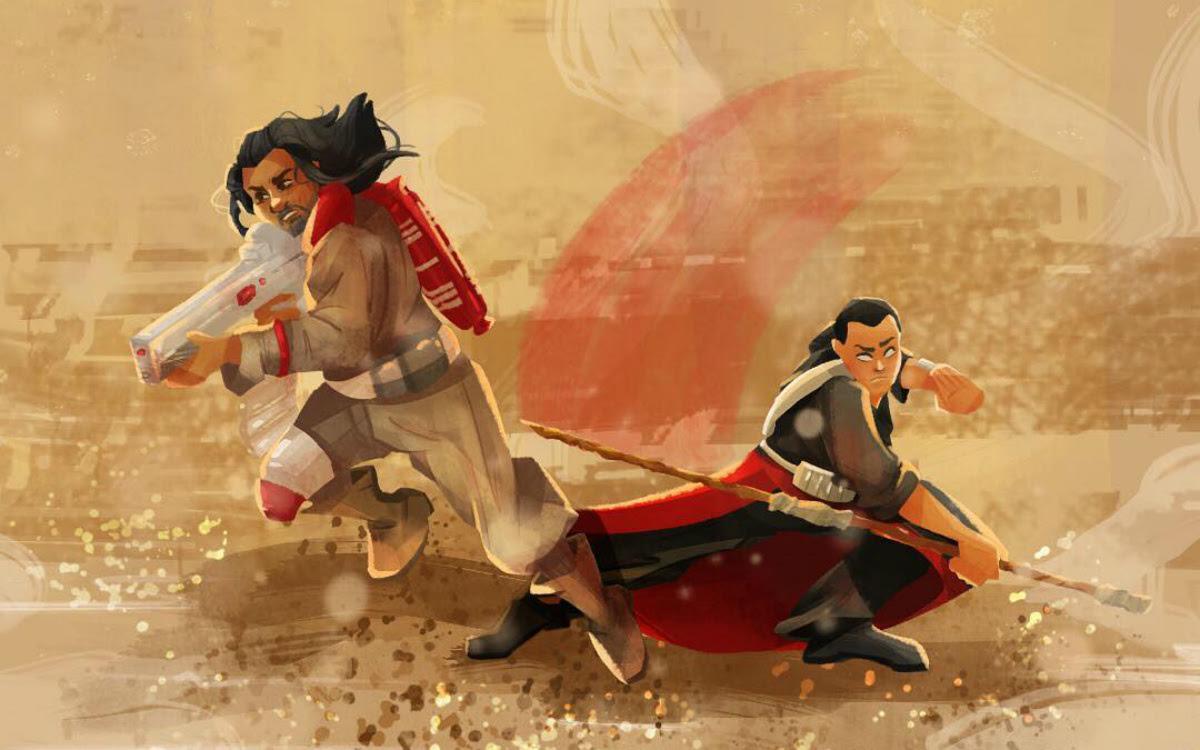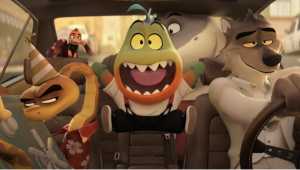Despite having two major Chinese actors, Rogue One doesn’t resonate with China’s audience.

A fan’s illustration of Baze Malbus (Jiang Wen) and Chirrut Îmwe (Donnie Yen). (Courtesy Star Wars Official Weibo)
Editor’s note: this article may contain spoilers relating to the plot of Rogue One.
Disney’s cash-cow may be raking in box office receipts in North America and Europe, but Chinese audiences continue to give a collective cold shoulder to Star Wars.
The franchise once again couldn’t find a foothold in the Chinese market as Rogue One: A Star Wars Story debuted this weekend with an estimated RMB 212 million (US$30.6 million).
The disappointing three-day haul was even less than The Force Awakens’ opening Saturday and comes despite the addition of local actors Donnie Yen and Jiang Wen and a stand-alone story, both of which Disney had hoped would attract Chinese moviegoers unfamiliar with the Star Wars universe.
Lingering negativity from The Force Awakens seems to have contributed to the box office drop and the majority of walk-ins seduced by Yen and Jiang’s inclusion were similarly confused by Rogue One’s character relationships and bored with its story.
“The first three-quarters of Rogue One were filled with perplexing dialogue and an overall sluggish plot,” wrote the most-liked, one-star user review on Maoyan, where general audiences have given Rogue One a weak 7.9/10 rating, even lower than The Force Awakens’ 8.2. “During my screening, some people were scrolling through their WeChat feeds. Some were playing games, and still others were sleeping. The sounds of snoring that filled the theater were more thrilling than the movie itself. The ending was baffling.”
“I guess they’re planning a sequel?” the user added.
While Chinese moviegoers were overwhelmingly down on Rogue One, they were impressed with how Donnie Yen and Jiang Wen held their own.
“The only bright spot in the film was Donnie Yen and Jiang Wen,” wrote another Maoyan review, representative of many. “They really weren’t just there to buy soy sauce.” — a popular phrase that means insignificant or just passing through and has been used to criticize Hollywood’s use of dispensable Chinese faces to pander to the market. “It’s just too bad they had to be killed off.”
Some media outlets have speculated that hazardous pollution across northern China may have affected turnout for Rogue One this weekend.
Box office data, however, shows otherwise, as attendance from The Force Awakens to Rogue One dropped uniformly in both cities afflicted with poor air quality and those with blue skies. Moreover, Beijing and Tianjin — the most-highly populated cities affected by the pollution — contributed the same exact percentage to both films’ opening weekends year-to-year.
Rogue One’s final cumulative total will depend on how it holds up against Passengers when it debuts next weekend, beginning January 13, but it should be dawning on Disney that no matter what they try, Star Wars just isn’t going to be a big thing in China.
Other weekend box office observations:
— Railroad Tigers (铁道飞虎), Jackie Chan’s latest action-comedy, finally came back down to Earth this weekend. Irregular box office behavior surfaced during the film’s first two weekends of release leading to speculation of market manipulation. China’s film officials still haven’t commented or meted out punishment. Railroad Tigers has grossed an estimated RMB 602 million ($87.0 million)
— Hacksaw Ridge received a coveted release extension and will play through the Chinese New Year. The World War II film has been wildly successful in China and had the highest average attendance per screening of any movie this weekend, its fifth in release. Hacksaw Ridge has grossed an estimated. RMB 392 million ($56.7 million).





